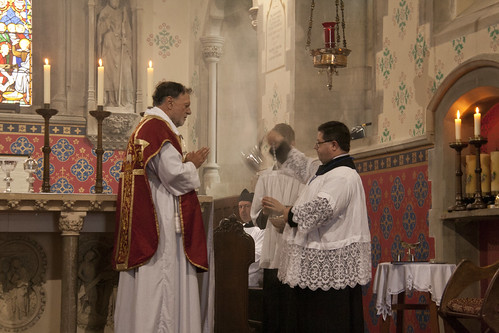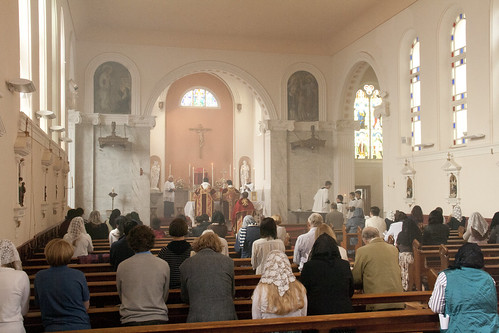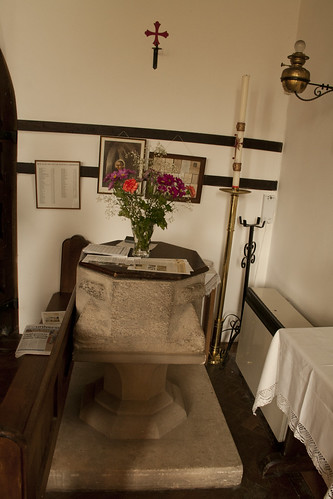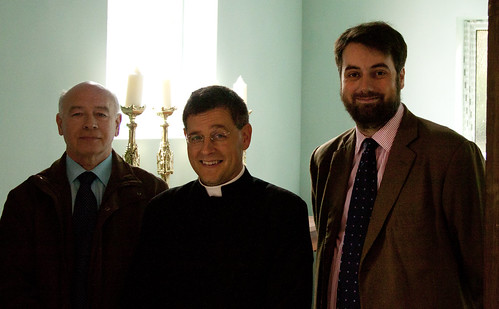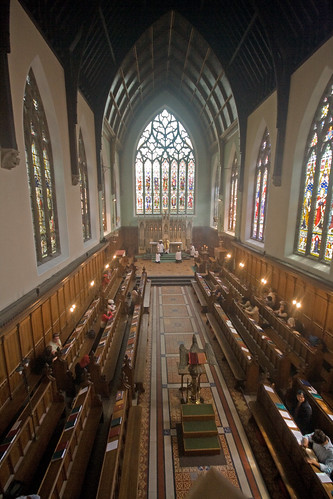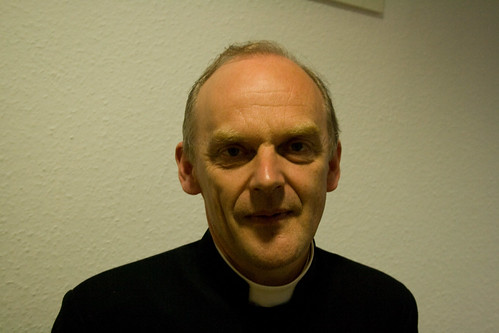 |
| The Latin Fathers: Gregory, Augustine, Ambrose, Jerome |
In 1989 the Congregation for Catholic Education, under the American Cardinal William Baum, published an Instruction,
Inspectis dierum nostrorum, on the place of Patristics, the study of the Fathers of the Church, in seminaries. This document is available in the on-line version of the '
Acta Apostolicae Sedis' (82 (1990) 607-636) the official record of all curial documents, but only in Latin; it is available on the Congregation's page on the Vatican website, but only in
Italian.
Is this someoe's idea of a joke? That a series of documents lamenting the fact that fewer and fewer people can read Latin, are available only in Latin? For this is not a one-off. Pius XI's decree on Latin in Seminaries
Officiorum omnium, the hugely important 1962
Veterum Sapientia of John XXIII, Paul VI's
Sacrificium laudis of 1966: all call for more Latin, and by an amazing coincidence the Vatican translators haven't bothered to put any of them into English - or any other vernacular language, except, bizarrely, Spanish for
Veterum Sapientia, and Italian for
Inspectis dierum and
Sacrificium laudis. And what's this? They haven't got round to an official translation of
Summorum Pontificum yet either, except into Hungarian.
Inspectis dierum is available on the website of the Bishops of the United States of America. This link appears to be broken from the
main page but you can get the document
here. It is a scan of a printed translation - better than nothing. Veterum Sapientia
is available and thanks to the Latin Mass Society so is
Sacrificium laudis.
 |
| Cardinal Baum |
Not having English (or other vernacular) translations freely available is a pretty effective way of ensuring that no-one reads these documents, and asks any awkward questions about the education our seminarians are getting. I've heard that the translation of texts is not the task of the Congregation which produces them, but is overseen by the Secretariat of State, so this is an example of un-joined up thinking in the Curia.
Here are some key passages.
11: 'Furthermore these days many students of theology, evidently graduates of technical schools, do not have that knowledge of classical languages that is necessary for any one to undertake an investigation of the Fathers in a serious way. For this reason, the state of Patristic instruction in institutes of priestly education grievously suffers from those changes in the culture that are observed in a growing scientific and technological mentality that attributes greater importance to the teaching of the natural and human sciences to the neglect of the liberal arts.'
(What of Catholic schools? Don't they have an obligation to resist this trend against the liberal arts?)
53: 'The study of Patrology and of Patristics, which in its initial stage consists in outlining [the subject-matter], demands that manuals and other bibliographical resources be employed. When one arrives at difficult and involved questions of Patristic theology, however, none of these aids suffices: one has to go directly to the Fathers' very texts. For it behoves Patristics to be both taught and learned—especially in Academies and in specialized curricula—with professor and student going directly to the primary sources themselves. Nevertheless, because of the difficulties that often detain students, it will be opportune to place into their hands bilingual editions known to be scientifically reliable.'
(A counsel of despair: having insisted on the necessity of reading the texts in the original, the authors seem to acknowledge that this is practically unattainable. But this is so only because seminaries are not teaching the languages to a decent level.)
64: 'For the teaching of Patrology and Patristics in Institutes of priestly formation, those are to be preferred who have followed specialised studies in that subject in the Institutes established for the purpose—as in the Roman Patristic Institute called “the Augustinianum” or in the Pontifical Superior Institute of Latin (the Faculty of Christian and Classical Literature). This is because it is useful for the teacher to have been instructed in the ability to go directly to the sources themselves.'
(Note the concern here that even Patristics
teachers won't have the languages.)
66: 'But it is clear that suitable instruments and resources are necessary to deal with Patristic studies properly. Such are libraries well stocked with respect to Patristics ('corpora' or collections, monographs, reviews or journals, dictionaries). And it is also clear that classical and modern languages are necessary as well. Since, however, the schools of our day and age are plainly deficient in the liberal arts, to the extent possible we shall have to further strengthen the study of Latin and Greek in our own Institutes of Priestly Formation.'
Popes and the Congregation for Education (and its former incarnations) have bemoaned the low level of clerical Latin, and called for improvements—culminating in
Veterum Sapientia of February 1962 —since Leo XIII, himself echoing the alarm of the French bishop fifty-odd years earlier (in the 1830s!) when the French government-run schools dropped the Latin verse composition requirement.
 |
| Jacob's Spring, in the Holy Land |
One of the watchwords of progressive theology of the Second Vatican Council era was 'ressourcement': 'going back to the sources'. This was a reaction to the over-use of textbooks in the bad old days. At least, in those days, the text books were usually in Latin, and as a result any seminarian could, with a bit of effort, read the original texts for himself if he wanted to, at least as far as Latin authors were concerned. Have we returned to the sources in seminary education? Alas no: most seminarians can't even understand the languages. Is reading a summary by a trendy modern theologian in the vernacular a good substitute? The Congregation for Catholic Education says NO!
If you want to know the ideal of pre-Conciliar seminary education, you need to read the document drawn up by the then Congregation for Seminaries which was to implement John XXIII's 1962
Veterum Sapientia, called
Sacrum Latinae linguae depositum. But before you can hear what it says about the importance of learning Latin in order to read the Fathers, you know what you'll have to do? Learn Latin. That's the only language in which this document appears to exist. (You can find it in the
online Acta: in the 1962 volume, ie vol. 54, it starts on p339.)


